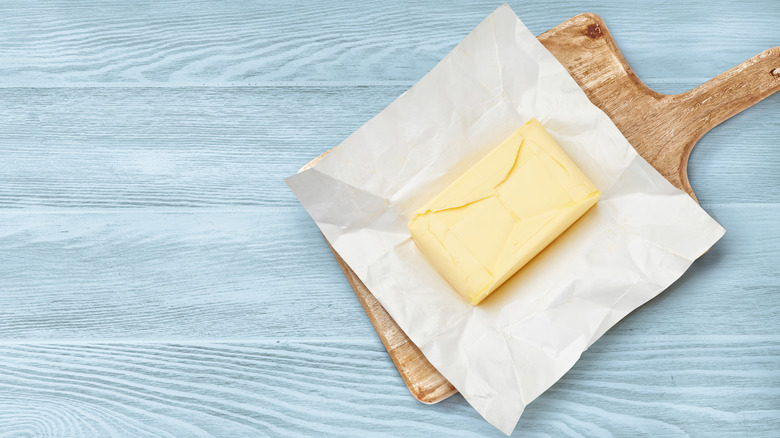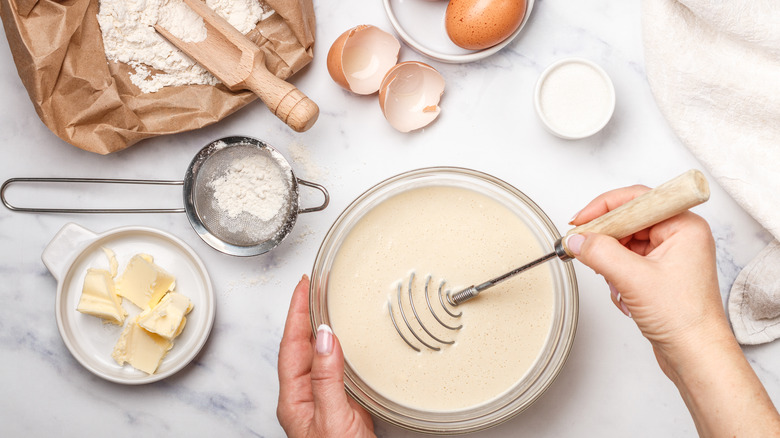This Is Why You Can't Substitute Salted Butter For Unsalted Butter
When you're baking with butter, it can be tricky at times to understand why a particular recipe calls for unsalted butter and then asks you to add salt separately. If you don't have any on hand, you might be tempted to use salted butter and simply reduce the amount of salt you add on top. Salted butter minus salt should be the same as unsalted butter plus salt... right? Sally's Baking Addiction says otherwise.
Baking is similar to chemistry and so, following a recipe to the letter is very important. Use too much butter in your cookies, for example, and they will turn out extremely soft and with a distinctly buttery taste. Use too little and they will come out looking like muffins (via Insider). The same logic applies when it comes to substituting unsalted butter with salted butter. There is no saying exactly how much salt goes into a stick of salted butter, which means you don't get any control over how much salt you are putting into sweet desserts. When you use unsalted butter, on the other hand, you get to decide how much salt to add — usually about a pinch.
Thus, it's safe to say that, if you would rather not have your cakes, cookies, and sweet desserts tasting oddly salty and savory, it's better to make a last-minute trip to the grocery store for unsalted butter.
Salted butter has a varying amount of salt
Adding salt in desserts can seem like a weird thing to do. However, salt can make or break your desserts. The amount of salt you add can differentiate an overly sugary dessert that you cannot eat more than a spoon of from a perfectly balanced dessert (via Bon Appetit). This why it's important not only to add salt to desserts, but also to add a precise amount of it. When you are adding a large amount of salted butter to a recipe, you are also adding a large amount of salt in it, which is not exactly the best idea.
When you use salted butter in place of unsalted butter, you don't know how much salt you are adding to your bake. Cook's Illustrated notes that the amount of salt present in butter can further vary depending on the brand. Besides, salt isn't all you have to worry about. The website suggests that salted butter usually contains a higher percentage of water than unsalted butter — somewhere between 10 to 18% — and that can mess with your bakes, too. Because water does not react well while baking, the higher water percentage of salted butter can make your bakes turn out soft and mushy.
While it's not the best idea to substitute unsalted butter with salted butter, if you find yourself in a pinch, you can reduce the amount of salt you add on top by 1/4 teaspoon for every half cup of butter (via Sally's Baking Addiction).

